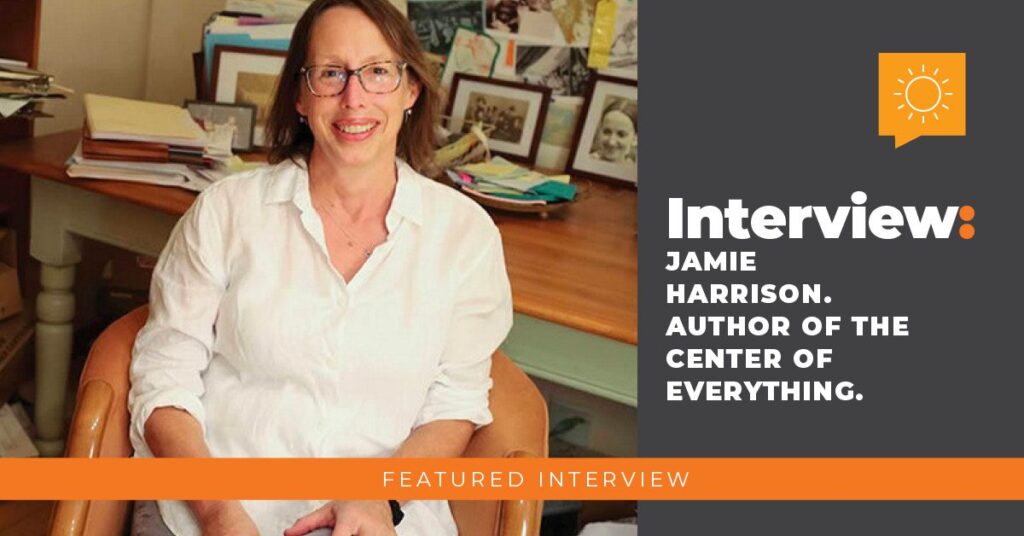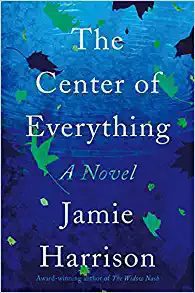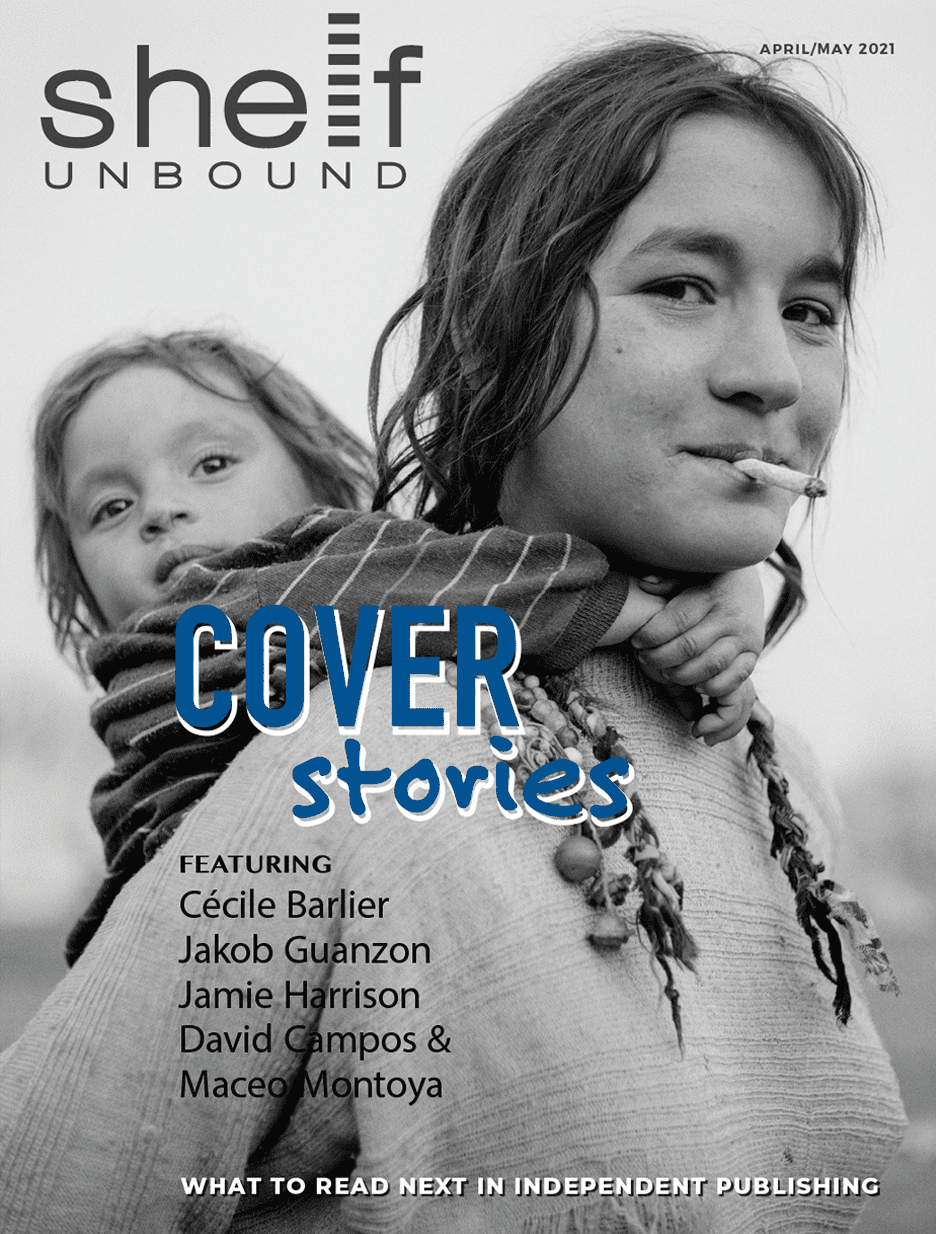By V. Jolene Miller

Meet Jamie Harrison, daughter of a poet/novelist, author of several books, and a woman who didn’t dream of growing up to be a writer. What?Thankfully, Jamie resisted a nonwriting life and recently completed her newest novel, The Center of Everything. Polly, the main character, lives an idyllic life in Montana until she’s involved in an accident and a beloved friend of hers goes missing. Now, Polly must navigate a sudden loss admit this new and strange normal.
Tell us a little about you. Did you grow up wanting to be a writer? What has your journey into being a writer been like?
JH: I didn’t grow up wanting to be a writer; my father was a poet and a novelist and I knew it was a rough way to make a living. I cooked and worked in magazines and eventually, after leaving New York for Montana, became the editor of a small press. When it went out of business, and I had trouble finding work, I tried writing a mystery for the sake of earning a living, and I got away with it.
Tell us about the inspiration for your newest novel, the center of everything.
JH: It came out of several things I’ve been curious about and wanted to write about—children and memory and grief—and earlier projects that somehow came together as one. I’d worked on a kind of a ghost story about children on Long Island in 1968, a short story about a young woman cooking in New York in the mid-eighties, and a contemporary mystery set in my town in Montana. And I also wanted to go back to some of the characters I loved in my previous book, The Widow Nash.
How is the center of everything different from your previous books?
JH: In a way, I’m not sure it is—it’s about the same family that is introduced in Widow, but because most of Center is set in 1968 and 2002 rather than 1905, Center just gets to be called a novel rather than historical. I have a bone to pick with that idea. The writing is the same, and I hope the characters are equally real—I wonder what the cutoff year for “historical” is. I edited out sections set in 1920 and the late forties, which will hopefully end up in a third book. And a lot of the 2002 section is pretty similar to my Jules Clement mysteries—the same basic world, and much of the same sensibility. Polly’s cousin Harry is pretty close to Jules.
You give us a close-up view of polly (mc) and her life after a brain injury. What was your research process like?
JH: A lot of reading. I’ve known several people who had closed-head injuries, and I have had a minor brain injury. So some of the details are drawn from life, but squared.
The confusion that comes with a brain injury is evident in Polly’s life after the accident. What was it like to write that perspective with such clarity?
JH: That kind of confusion can be completely denting—it just shakes you to your core. Writing about it was a good way of finding my way out of it, if only by imagining it being worse. I had always intended to write about the supposed iffiness of Polly’s childhood memories, but this gave me a way to think about how a child really sees, and give Polly back some of that ability. I really tried to remember how I saw the world at eight, and it helped to look back at things I’d seen and heard — LIFE Magazine to book illustrations, top 40 songs, and Walter Cronkite.
The imagery and word choice in the center of everything is achingly beautiful. Does this come naturally to you while writing, or does it develop over time through the revision process?
JH: Thank you! I think some of anyone’s best writing is deeply felt and often comes out of nowhere—the thoughts that send you scrambling for a piece of paper—but consistency and overall quality is definitely about revision. My first drafts are awful, and getting all the bits to work together sometimes feels endless. My husband reads everything, and I have a wonderful agent, Dara Hyde, who knows what works and what doesn’t, and then I have Dan Smetanka, the best editor in the world. Though he’s occasionally heartless.
Who are a few of the authors you like to read? How do their books influence your writing?
JH: I read a great deal by the time I was twenty-two, everything from the supposed great books canon to Ian Fleming, Daphne duMaurier to Faulkner to Aeschylus to hundreds of mysteries, and I’ve been behind ever since. I just finished Hamnet and it was gorgeous; I’d die happy if I could write a story as spare and incredible as Train Dreams or as fluid as The Known World. So many great writers, so little time: my bedside table is currently piled with Jess Walters, Denise Mina, Lauren Groff, Ladee Hubbard, Tod Goldberg, David Mitchell, James McBride.
When can we expect your next book? And, can you tell us anything about it?
JH: Aaargh. I’m two-thirds of the way into two mysteries with my old character Jules Clement, which is a kind of hell-zone of shoveling sand. But I’ll pop through, soon. And when I can’t bear my plot problems, I’m scribbling down bits of a third book in the Polly series.

About the Book
Set against the wild beauty of Montana as a woman attempts to heal from a devastating accident, The Center of Everything by Jamie Harrison is a generational saga from the award-winning author of The Widow Nash is a heartfelt examination of how the deep bonds of family echo throughout our lives.
For Polly, the small town of Livingston, Montana, is a land charmed by raw, natural beauty and a close network of family that extends back generations. But the summer of 2002 finds Polly at a crossroads: a recent head injury has scattered her perception of the present, bringing to the surface long-forgotten events. As Polly’s many relatives arrive for a family reunion during the Fourth of July holiday, a beloved friend goes missing on the Yellowstone River. Search parties comb the river as carefully as Polly combs her mind, and over the course of one fateful week, Polly arrives at a deeper understanding of herself and her larger-than-life relatives. Weaving together the past and the present, from the shores of Long Island Sound to the landscape of Montana, The Center of Everything examines with profound insight the memories and touchstones that make up a life and what we must endure along the way.

[cm_page_title title=”Continue Reading” subtitle=” Shelf Unbound”]
Article originally Published in the April / May 2021 Issue: Cover Stories.
